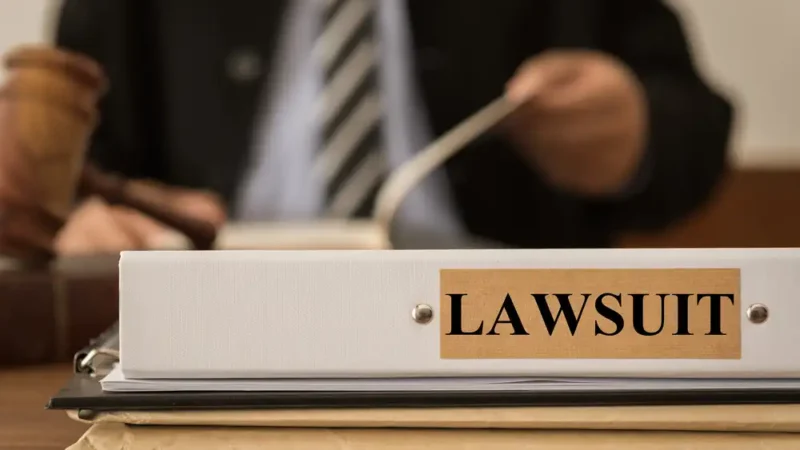Great Western Buildings Lawsuit: The Legal Battle Shaping Construction Standards

The construction industry is no stranger to legal disputes, but the lawsuit involving Great Western Buildings has garnered significant attention due to the gravity and breadth of the allegations. This article delves into the intricacies of the lawsuit, exploring the various claims, the company’s response, the potential implications for the industry, and the broader consequences for consumers and regulatory practices.
Background of Great Western Buildings
Great Western Buildings, a prominent manufacturer of steel buildings, has established itself as a key player in the construction industry, known for providing customizable building solutions for various applications, including commercial, agricultural, and residential use. The company has built a reputation for offering durable and cost-effective structures, attracting a wide range of clients across the United States.
The Allegations
The legal troubles for Great Western Buildings began to surface when numerous clients reported significant issues with their buildings. The allegations against the company can be broadly categorized into four main areas: construction defects, breach of contract, fraudulent billing practices, and environmental concerns.
Construction Defects
Many plaintiffs have alleged that buildings constructed by Great Western Buildings suffer from severe construction defects. Common issues reported include leaking roofs, rusting materials, structural instability, and non-compliance with building codes. These defects not only compromise the integrity and safety of the buildings but also result in substantial financial losses for the owners due to the need for repairs and potential loss of use.
Breach of Contract
Breach of contract is another significant aspect of the lawsuits. Plaintiffs claim that Great Western Buildings failed to adhere to the terms of their contracts, which include project delays, substandard workmanship, and not meeting the agreed-upon specifications. Such breaches have led to frustration and financial strain for many customers who had invested substantial amounts in their building projects.
Fraudulent Billing Practices
Several lawsuits have accused Great Western Buildings of engaging in deceptive billing practices. These allegations include inflating costs, charging for services not provided, and misrepresenting expenses. Such practices not only erode trust but also exacerbate the financial impact on clients who feel they have been unfairly charged.
Environmental Concerns
Although less prevalent, some lawsuits have brought to light environmental concerns, accusing Great Western Buildings of using materials that pose environmental or health hazards. These allegations suggest a disregard for environmentally friendly practices, further damaging the company’s reputation in an increasingly eco-conscious market.
Legal and Financial Implications
The legal challenges facing Great Western Buildings are formidable. The company must navigate the complexities of construction law, which involves intricate contractual agreements and regulatory compliance. The scale and severity of the allegations mean that the company not only risks significant financial penalties but also faces a potential blow to its reputation and future business prospects.
Financially, the costs associated with defending against these lawsuits can be substantial. Legal fees, potential damages, and the need for corrective measures on defective buildings all contribute to a significant financial burden. Additionally, the negative publicity surrounding the lawsuits can lead to a decline in new business, further straining the company’s financial health.

Great Western Buildings’ Response
In response to the allegations, Great Western Buildings has maintained that they adhere to all relevant laws and industry standards. The company’s defense strategy is likely to focus on demonstrating compliance with contractual obligations and building codes. They may also challenge the validity of some claims, arguing that certain issues were beyond their control or not their responsibility.
Apart from the legal defense, Great Western Buildings has also engaged in a public relations campaign to manage its reputation. The company understands that the court of public opinion can be as impactful as the legal verdict. By maintaining transparent communication and demonstrating a commitment to rectifying any proven shortcomings, they aim to preserve their standing in the industry and with their customers.
Industry-Wide Repercussions
The implications of this lawsuit extend far beyond the parties directly involved. It has sparked a broader discussion about industry standards and regulatory practices in the construction and real estate sectors. There is a growing call for more stringent oversight and enforcement of building codes and safety regulations. Moreover, the case highlights the need for transparency and ethical practices in real estate transactions, potentially leading to more rigorous disclosure requirements and consumer protection measures.
Regulatory Reforms
One of the most significant potential outcomes of the lawsuit is the push for regulatory reforms. The construction industry may see tighter regulations regarding material quality, construction practices, and environmental standards. Regulatory bodies might implement more rigorous inspections and compliance checks to ensure that companies adhere to the highest standards.
Impact on Construction Standards
The case could redefine acceptable practices in the construction industry. A ruling against Great Western Buildings might prompt companies to exceed minimum legal requirements to avoid litigation, ultimately benefiting consumers through higher-quality construction and more durable buildings.
Legal Precedents
The lawsuit could set important legal precedents for future disputes in the construction industry. It may influence how contracts are drafted, how responsibilities are divided among different stakeholders, and how liability is determined in cases of construction defects. Such precedents can provide clearer guidelines for both companies and consumers, reducing the likelihood of similar disputes in the future.
Consumer Protection
This lawsuit underscores a critical aspect of consumer protection in the real estate sector. Consumers often invest significant capital in properties, relying on the assurances of developers and construction companies. The allegations against Great Western Buildings highlight potential vulnerabilities consumers face, emphasizing the need for more robust safeguards. The outcome of this case could lead to enhanced consumer rights and more robust mechanisms for addressing grievances, ensuring that individuals are not disadvantaged in complex real estate transactions.
Enhanced Consumer Rights
Consumers may benefit from new regulations that require greater transparency in construction practices and materials used. This could include mandatory disclosures about the quality and source of building materials, ensuring that buyers have a clear understanding of what they are investing in.
Grievance Mechanisms
The lawsuit highlights the importance of having effective mechanisms in place for consumers to address grievances. This could lead to the establishment of independent bodies or ombudsmen to oversee and resolve disputes between consumers and construction companies, providing a more accessible and fair process for addressing complaints.
Conclusion
The lawsuit against Great Western Buildings is a major legal case with important consequences for the construction industry. It deals with complicated issues like breaking contracts, carelessness, and professional responsibilities. The financial and reputational risks are high for everyone involved. The result of this case could change future construction methods and legal rules. As the case progresses, industry and legal experts are paying close attention to see how it will affect construction laws and practices.
The case underscores the importance of ethical practices, transparency, and compliance with industry standards. It also highlights the need for robust consumer protection mechanisms and regulatory oversight to ensure that construction companies are held accountable for their practices. Regardless of the outcome, the Great Western Buildings lawsuit is set to leave a lasting impact on the construction industry, driving improvements in quality, safety, and consumer trust.






